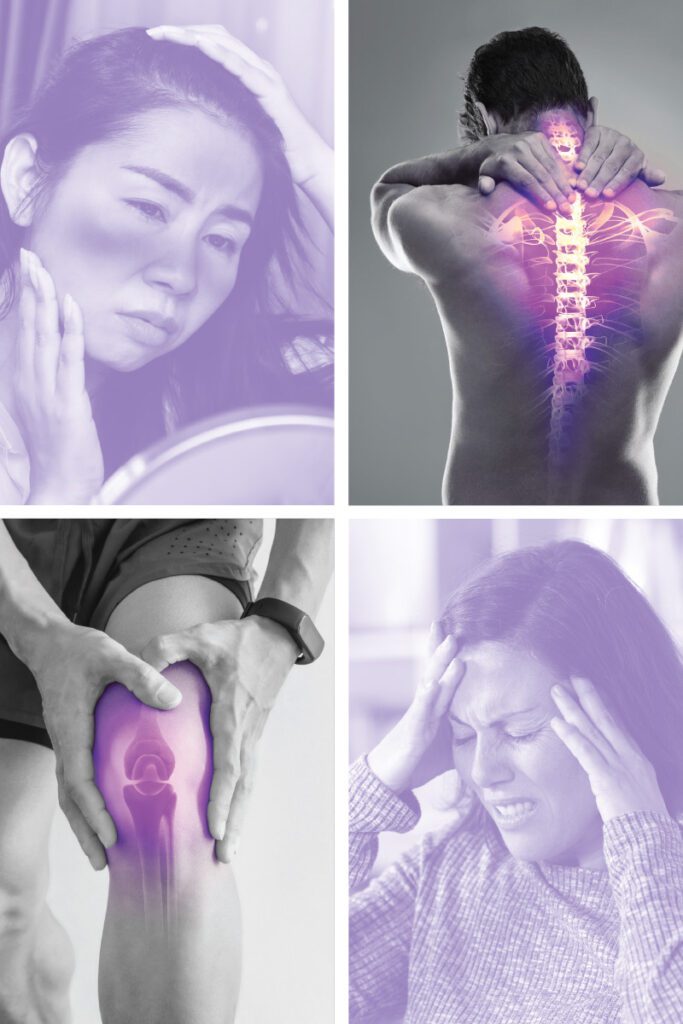The 411 on This Autoimmune Disease
Lupus causes a wide range of symptoms and can affect every part of the body, which can have a massive impact on a person’s quality of life. While there is currently no way to prevent the onset of lupus, treatments have evolved to better manage symptoms, reduce flare-ups, and let people get back to living their lives. Read on to learn more about this disease and for some tips to help you or your loved one manage symptoms.

What is Lupus?
Lupus is an autoimmune disease that causes the body’s immune system to attack its own tissues and organs. Because lupus is often a systemic disease, damage to tissues can occur throughout the body and lead to inflammation affecting the skin, joints, blood, and organs like the kidneys, heart, and lungs.
The three types of lupus are:
- Systemic lupus erythematosus: the most common type of lupus characterized by symptoms throughout the body.
- Cutaneous lupus erythematous: lupus that only affects the skin.
- Neonatal lupus: lupus that affects babies from birth. Babies born to biological parents with lupus are more likely to have the condition, but it is not guaranteed.
Unfortunately, the exact cause of lupus is not yet clear, but researchers have linked genetic factors, hormones (particularly estrogen), environmental factors like sun exposure and pollution, and personal health history including smoking, stress level, and other autoimmune conditions as potential triggers for lupus.
Symptoms of Lupus
Lupus causes different symptoms depending on what part of the body is affected, so everyone’s experience with lupus can be a bit different. The severity of lupus depends on how many systems are affected and how often a person experiences flare-ups. For most people, symptoms will come and go in waves – a person can experience periods of remission with little to no symptoms or flares that can be severe enough to interrupt their daily life.
Common Symptoms Include:
- Joint and muscle pain
- Chest pain especially when taking a deep breath
- Headaches
- Rashes, particularly a “butterfly rash” across the face
- Fever
- Hair loss
- Mouth sores
- Fatigue
- Shortness of breath
- Swollen glands
- Swelling in the arms, legs, or face
- Confusion
- Dry eye
- Increased sensitivity to sunlight
Treating Lupus
There is currently no cure for lupus, so the goal of treatment is to minimize tissue and organ damage, manage symptoms, and prevent flare-ups. Because lupus is a complex disease, most people need a combination of treatments, including medications and lifestyle changes, to manage it.
Medications include:
- Hydroxychloroquine: a prescription antiviral medication which can lessen symptoms and slow their progression.
- NSAIDs: OTC medications which relieve pain and reduce inflammation.
- Corticosteroids: prescription medications to reduce inflammation.
- Immunosuppressants: medications which reduce the immune system’s activity to prevent further tissue damage.
- Medications to address secondary issues that can be caused by lupus such as anemia, hypertension, and osteoporosis.
Lifestyle Changes
Certain adjustments to lifestyle can help prevent flare-ups, and it is important to avoid activity that is known to trigger your lupus. If sun exposure is a trigger for you, limit time spent in the sun and try to avoid going out when the sun is at its brightest. Wearing long sleeves, hats, and UV-protective clothing can help, and suncreens should be at least SPF 50. It is also important to manage stress levels by getting enough sleep and working with a mental health professional to find healthy coping mechanisms if needed. In addition, work to maintain your health as much as possible by eating a healthy diet, staying hydrated, and keeping active.
Q&A With a Physical Therapist
For some, physical therapy can be a helpful tool to overcome the challenges of lupus and get back to living life to the fullest. A physical therapist can help patients find ways to stay active and make things easier in their daily lives. In order to learn more about how physical therapy can help, we spoke with physical therapist Amy K. Jones of Encompass Health Rehabilitation Hospital.
Q: Are there any physical therapy exercises that can help patients with lupus manage chronic pain?
A: Exercise is an important part of managing lupus symptoms. People with lupus often have painful, swollen joints as well as tight, stiff muscles. Low-impact exercises such as walking, biking, swimming, yoga, and Tai Chi are helpful in managing these issues. Chest pain can also be problematic, so breathing exercises can be effective. Endorphins released by exercise can also be helpful with depression.


Q: Are there any assistive devices that can make daily life easier for patients with lupus?
A: Since patients with lupus often struggle with fatigue, assistive devices designed to compensate for fatigue during daily activities are important to consider. For example, shower chairs allow patients to sit during bathing to conserve energy. Also, rolling walkers allow patients to have a place to sit when fatigued, as well as a way to carry items like laundry from room to room with lower energy requirements. If fatigue is severe, power wheelchairs can be useful to reserve energy for necessary activities instead of using energy to move about.
Q: Do you have any advice for patients who may have trouble sticking to a regular exercise routine due to fatigue?
A: A recent research study found that 30 minutes of intense treadmill walking three times a week for 12 weeks led to increased activity tolerance by delaying the switch from aerobic to anaerobic energy consumption. Don’t give up if you miss a planned workout, just try to get back into the routine as soon as you can. Plan for exercise by reserving energy for the activity – don’t plan other energy-intensive activities close to the same time frame.
Q: Do you have any additional advice for patients with lupus?
A: Having a comfortable work environment can help manage stress. Remember that people with lupus are protected under the Americans with Disabilities Act, and you can have reasonable accommodations. Educate family and friends about lupus, and discuss strategies for support as needed. Keep a medical journal to track symptoms, what works for you, and what triggers flare-ups. Find a support group; lupus.org/resources/find-support-near-you is an excellent resource.


Amy K. Jones, PT, GCS
Physical Therapist, Encompass Health Rehabilitation Hospital of Chattanooga

